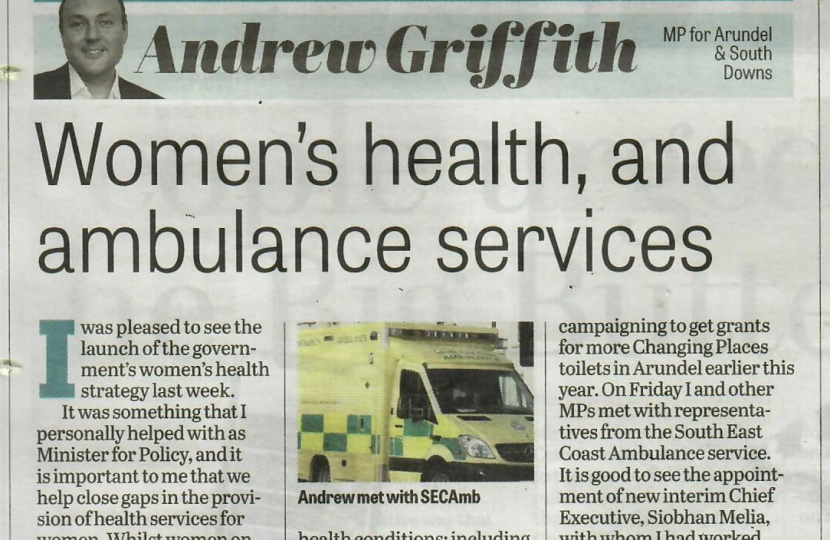
I was pleased to see the launch of the governments women’s health strategy last week. It was something that I personally helped with as Minister for Policy, and it is important to me that we help close gaps in the provision of health services for women.
Whilst women on average do outlive men, they spend a greater proportion of their lives in poor health often limiting their ability to work or fully participate in day-to-day activities. Given that we are talking about 51% of the population – and an even higher proportion within some age groups – it seems perfectly sensible to me that we should ensure our NHS is lined up to deliver the services that are needed.
What that means in practice is greater investment in women specific health conditions; including expanding accessing NHS fertility treatment, pregnancy loss, breast cancer and gynaecological conditions like endometriosis a condition which affects 1 in 10 women and often at present, goes undiagnosed. Whilst society is getting better at recognising the menopause and treating its symptoms, urinary incontinence affects millions of women and too often the medical advice is simply to live with it. I came across this lifestyle inhibiting issue whilst successfully campaigning to get grants for more Changing Places toilets in Arundel earlier this year.
On Friday I and other MP’s met with representatives from the South East Coast Ambulance service. It is good to see the appointment of new interim Chief Executive, Siobhan Melia, with whom I had worked well during COVID, but I had to raise the real concerns of the rural communities whom I represent about some cases of unacceptably long waits for an ambulance. Siobhan explained how the government has set a new maximum two-hour response time for an elderly person in a fall situation. I extended my thanks to her team and to all those ambulance crews and call handlers for their dedication and we clearly all hope that the situation does improve rapidly.